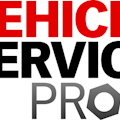CarShield to pay $10 million over deceptive advertising charges
The Federal Trade Commission (FTC) announced that NRRM, LLC, which does business as CarShield, and American Auto Shield, LLC, will pay $10 million to the FTC over deceptive advertising and telemarketing charges.
According to the FTC, the companies' celebrity and consumer endorsers made false statements about what their vehicle service contracts would cover in their ads. The companies are also barred from making any additional deceptive or misleading statements in the future, as are any endorsers they utilize in the future.
The agency said that many purchasers of CarShield's vehicle service contracts found that a large number of repairs weren't covered by the contract despite costing approximately $80 to $120 a month. CarShield's ads, however, promised purchasers protection from expensive repairs and breakdowns with all repairs to "covered" systems being paid by CarShield.
The three specific deceptive statements that the FTC names in its complaint are that all repairs to covered vehicle systems will be paid for under the contract, that consumers would receive a rental car at no cost when their vehicle isn't driveable, and that consumers could use a repair facility of their choice for repairs. According to the agency, none of CarShield's contracts actually covered all repair costs, and consumers who had their claims denied couldn't get a rental car. Consumers who had their claims approved still had to pay for a portion of the rental. Additionally, many facilities simply didn't accept the contracts, limiting consumers' ability to get their vehicles repaired.
“For many consumers, a personal vehicle is one of their most valuable assets and a vital lifeline for getting to work, taking their kids to school, and obtaining medical care. Instead of delivering the ‘peace of mind’ promised by its advertisements, CarShield left many consumers with a financial headache,” said Director of the FTC’s Bureau of Consumer Protection Samuel Levine. “Worse still, CarShield used trusted personalities to deliver its empty promises. The FTC will hold advertisers accountable for using false or deceptive claims to exploit consumers’ financial anxieties.”
The FTC also said that the majority of the companies' celebrity endorsers had never signed up for or used the contracts despite being labeled as real customers who had saved money with the contracts. It even found that the advertisements with consumer endorsers hadn't actually saved the amount that they were shown to have saved in the commercial.
The agency's order bans CarShield from misrepresenting any endorser's experience with any product or service, requires American Auto Shield to notify any third-party marketers of the order and to review and monitor their advertising and marketing, and imposes a standard reporting and compliance provision that will remain in place for up to 10 years. The $10 million judgment will be used to refund any defrauded customers.

